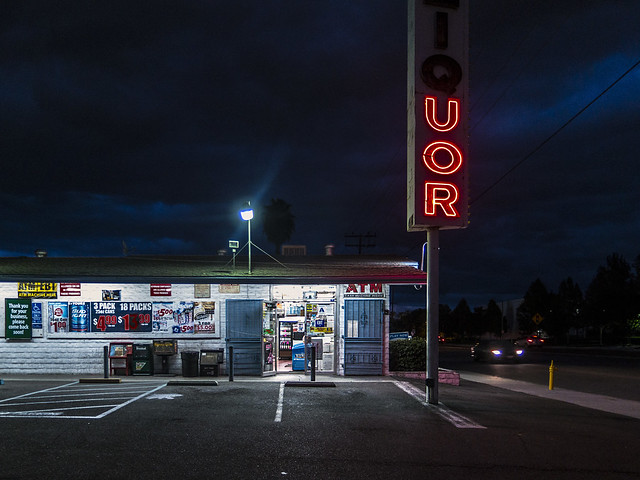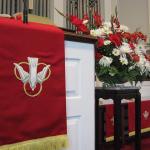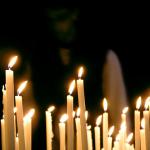
Practical Theologians
For many of us the idea of practical theology seems like an oxymoron. What would practical theologians do?
There are few things we can imagine which might be less practical than theology. We tend to see theology as philosophical, conceptual, and more intellectual than we have time to consider.
For us, practical things are nuts and bolts, ideas we can apply and put into practice in our everyday lives.
In fact, practical theologians are all about how those ideas fit together. How do we act on what we believe in regular life?
We are not trying to construct the most convoluted or comprehensive theory, or to cover all the possibilities. The essential aspect of our theology is how it effects the ways we behave.
If our theology is not practical, what difference does it make? Why is it important? If what we believe does not make a difference in our everyday lives, it is not important. It is a waste of our time.
I have never really studied theology as an academic pursuit. My interest is primarily in the practical differences it makes in our lives.
Even the subjects I have studied academically do not particularly interest me when they are not practical.
My image of practical theologians is not people protected in ivory towers at universities, writing books. I am much more interested in practical theologians who can help us recognize how we put what we believe into practice. What are the ways people have practiced their theology in the past, and what new ways can we try now?
Many of us tend to find the idea of theology intimidating. We get anxious or afraid, or bored, when people talk about theology. Practical theologians might help us put what we believe in terms we can understand and appreciate.
My Favorite Practical Theologians
I discovered a new favorite practical theologian this summer.
The theologians I appreciate the most have been Dashiell Hammett and Raymond Chandler. This summer I have started reading Ross Macdonald.
These three practical theologians wrote novels, and screenplays, which describe how to put what we believe into practice. They each provided their own perspective on the theological challenges of American life.
Some people might not appreciate the questions and insights they raise for us. For me, they not only explore theological questions, they also express them in amazingly memorable stories.
The stories they tell are built around interactions of the powerful and the powerless, of justice and injustice. They find ways to discover and describe the interplay of good and evil.
My own personal theology often emerges in times where people need to seek help. Each of these practical theologians describes situations in which they are asked to assist people work things out. Their characters deal with complicated problems and sort out how close they can come to justice. They give their counsel and people choose to either follow or ignore it.
I believe we live in a world which is hungry for the theology of these writers. Their characters face twists and turns, often not sure of the path they are following until it is almost too late.
They did not write about a theology of intricately connected concepts or absolute truths. Their theology worked for a living, and needed to work in the everyday world.
I am inspired by practical theologians who find and follow the truth they need to solve everyday problems. These writers did not write lofty books to engage in academic debate. Their books communicate everyday theology to people who are not necessarily convinced they are interested in theology.
Practical Theologians in Disguise
The people who shape my own theology often do not fit my expectations of what theologians are supposed to be like. They are not necessarily interested in theological questions, and more focused on solving puzzles.
Most of us are not particularly paying attention to what we think of as theology. It is easy for us to get distracted into thinking theology is an academic pursuit, and not a search for meaning. We assume theology is about theories and ideas, and sometimes forget it is about what we do as much as how we think.
Sometimes practical theologians disguise themselves as agitators or troublemakers. They can make it uncomfortable for those of us who do not want to rock the boat by asking significant questions. Practical theology is more about putting what we believe into practice than about having a smooth, easy trip.
The writers I read do not usually describe situations in which everyone gets along. Their characters raise difficult truths and keep raising them until we pay attention.
We need to remember each of us us is exploring our own theology, finding truths and pulling on threads. It is often not easy, but the rewards come as we persist.
We Are Practical Theologians
Some of us may not recognize it, but each of us is a practical theologian.
What do we believe, and how will we put our beliefs into practice?
Where will our beliefs lead us as we reflect on the questions and insights we recognize today?
Whose writing will inspire us and show us new ways of understanding and applying what we believe?
We are no longer satisfied to simply float along on top of our beliefs, distracted by our thoughts. Our lives are not about finding the precisely correct theories to believe or thoughts to think. We are exploring what we believe, trying to see how to put our beliefs into practice in our everyday lives.
Like a hardboiled detective in a pulp novel or a noir film, we are the focus of our own stories. The stories turn on whether we can put the pieces together and find ways to make things work. There will be challenges along the way, but the story is about our practical theology.
Our story puts our own practical theology to work.
When will we be practical theologians in disguise today?
What other practical theologians will inspire us this week?
[Image by Ambiguous J. Fogg]
Greg Richardson is a spiritual director in Southern California. He is a recovering assistant district attorney and associate university professor, and is a lay Oblate with New Camaldoli Hermitage near Big Sur, California. Greg’s website is StrategicMonk.com and his email address is [email protected].












